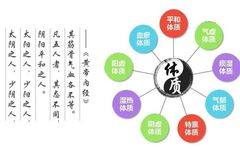Follow Teacher Mu’s video account, where Mu interacts and answers questions in the live stream.

Long press the image above to follow Teacher Mu’s video account↑↑↑
To regulate your constitution, you must first understand the following three points:First: The tendency of the constitution is a common major reason for the recurrence of stubborn diseases, and the constitution is closely related to lifestyle and work habits.Second: The way the constitution triggers disease is through the yin-yang tendency of the constitution leading to the production of pathological products in the body,which, after accumulating to a certain extent, can trigger the occurrence or recurrence of disease due to an inducing factor. Therefore, when treating and regulating diseases, there are three focal points:the disease itself, the inducing factors, and the underlying pathological products..Third: The constitution is usually not singular; it often has one dominant type, but sometimes due to seasonal weather, dietary emotions, and other changes, characteristics of other secondary or even multiple constitutions may appear. 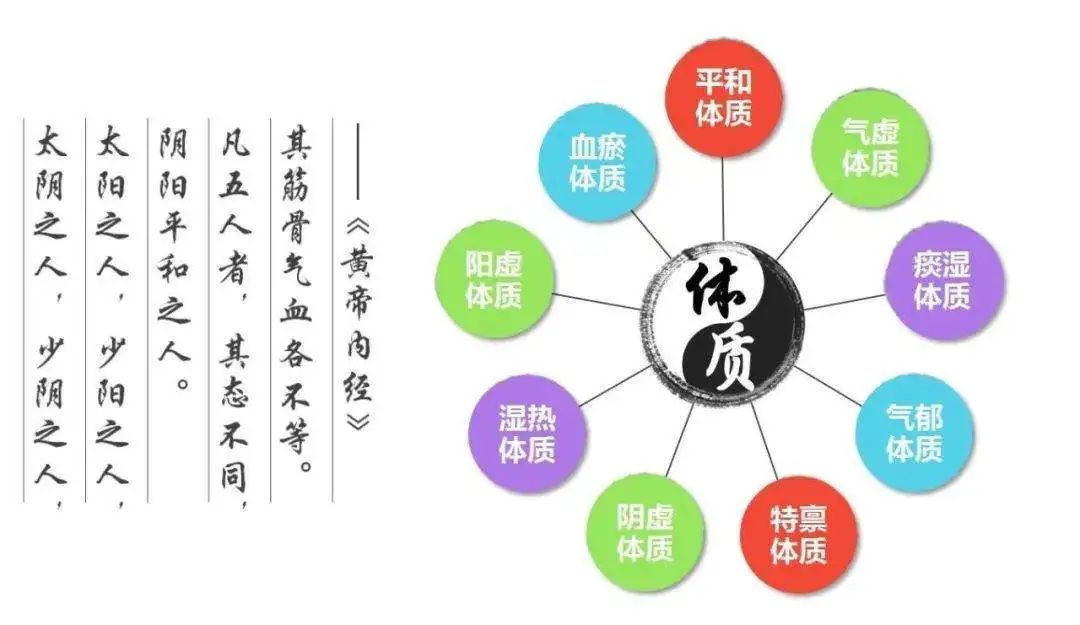 Therefore, to achieve long-term stability in health, one must have the mental preparation and physical action to regulate the constitution.1.What is Constitution?Constitution, also known as “quality,” “innate quality,” “temperament,” or “physical quality,” refers to the physical and psychological characteristics of different individuals in terms of form, function, and mind. The theory of constitution studies the concept, formation, types, characteristics, and their influence on the occurrence, development, and transformation of diseases, guided by TCM theory, and uses this to guide the diagnosis and prevention of diseases. The study of constitution in TCM is an important topic in understanding life, health, and disease.The understanding of constitution in TCM originates from the “Huangdi Neijing” (Yellow Emperor’s Inner Canon), which often uses terms like “form,” “innate,” and “quality” to describe constitution, clearly indicating that constitution is closely related to the morphology and structure of the organs, as well as the balance of qi and blood, and studies the differences in constitution among individuals and different groups. In the Song Dynasty, Qian Yi summarized the characteristics of children’s constitution as “developed but not complete,” “complete but not strong,” and “organs are weak, easily deficient or excessive, easily cold or hot.” Chen Zhi in the Song Dynasty elaborated on the characteristics of the elderly’s constitution, especially their psychological characteristics. Zhang Jiebin in the Ming Dynasty was one of the first to use the term “constitution,” stating in the “Jingyue Quanshu” that “the quality of constitution varies, and those with strong constitutions and those with newly contracted diseases should be treated accordingly.” He proposed that constitution is influenced not only by innate endowment but also by acquired factors. After the Qing Dynasty, the term “constitution” was used more frequently to describe the physiological peculiarities of different individuals. For example, in the “Clinical Guidelines for Medical Cases,” it states: “In discussing diseases, one must first discuss constitution, form, and pulse, as diseases are external factors affecting the body.”The formation of constitution is influenced by both innate and acquired factors—therefore, constitution can be regulated and changed..Innate factors mainly include parental inheritance, gender differences, and the month and region of birth, which are also important factors.Acquired factors include: lifestyle habits, work habits, emotional changes, living environment, diet, work-rest balance, medications, etc. Therefore, to regulate the constitution, one must start from the influences mentioned above.2.Classification of ConstitutionConstitution can be classified using two methods: the three-part method and the nine-part method. Teacher Mu will write a series of articles and live streams to provide detailed explanations and corresponding regulation methods.1. Three-part method: balanced yin-yang constitution, yang-deficient constitution, yin-deficient constitution.This can be simply understood as yin-yang balanced type, heat-deficient type, and cold-deficient type. The regulation method follows the principle of “warm if cold, drain if hot.” Practically, it emphasizes the following nine types of constitution regulation methods.2. Nine-part method, established by the Chinese Association of Traditional Chinese Medicine:Yin deficiency: dryness, heatYang deficiency: cold intoleranceQi deficiency: lack of speechBlood stasis: many spotsQi stagnation: depressionPhlegm-dampness: large abdomenDamp-heat: oily skinSpecial constitution: allergiesBalanced: yin-yang balance 3. Today, we will focus onthe characteristics and regulation methods of Yin Deficiency Constitution:1. Yin deficiency constitution is a type of yang-deficient constitution, characterized by heat, movement, and redness.Overall characteristics: deficiency of yin fluids, primarily manifested as dryness of the mouth and throat, heat in the palms and soles, etc.Physical characteristics: body shape tends to be thin.Common manifestations: heat in the palms and soles, dryness of the mouth and throat, slightly dry nose, preference for cold drinks, dry stools, red tongue with little moisture, thin and rapid pulse.Psychological characteristics: irritable temperament, extroverted and active, lively.Predisposition to diseases: prone to deficiency-related illnesses, loss of essence, insomnia, etc., and easily affected by heat pathogens.Adaptability to external environments: tolerates winter but not summer, and cannot withstand heat and dryness. 2. Principles of how Yin Deficiency affects bodily changesThe main factors affecting the body due to yin deficiency are two:The first is the lack of fluids; when there is insufficient water in the body, it leads to dryness in various aspects.The second is the presence of empty heat, leading to heat conditions in the body.These two points together mainly affect the qi and blood of the organs:1. Insufficient stomach yin leads to less gastric juice, resulting in poor digestion, hence no weight gain, which is more common in children. Insufficient yin leads to stomach heat, causing bad breath, hard stools, and frequent acne on the face and back.2. Stomach heat rising can disturb the heart spirit, leading to poor sleep.3. Stomach heat rising can lead to lung heat, making one prone to colds and coughs.4. Insufficient liver yin leads to excessive liver yang, making one prone to anger and dizziness, and for the elderly, it directly increases the risk of stroke.5. Long-term liver yin deficiency can lead to waking up between 1-3 AM due to the active liver meridian, resulting in long-term poor sleep and other series of pathological changes.6. Insufficient kidney yin and rising empty heat can lead to easy heat, sweating, especially night sweats; sweat is the fluid of the heart, and excessive sweating can further damage yin.7. Long-term kidney yin deficiency can excessively consume kidney yang (the body releases too much kidney yang to balance), leading to a dual deficiency of yin and yang, which in turn causes series of yang deficiency problems.8. The heat from yin deficiency can scorch the fluids in the body, forming phlegm and leading to blockages in the meridians, resulting in various nodules and tumors, and in severe cases, cancer.9. The heat from yin deficiency directly harms qi, leading to qi deficiency.10. Yin deficiency leads to insufficient blood moisture, combined with empty heat, can lead to high blood lipids and high blood pressure, inducing cardiovascular problems.11. Other issues related to the lungs, spleen, large and small intestines, and sanjiao will not be listed one by one. So, does yin deficiency necessarily induce all the above problems? Theoretically, yes, but in practice, usually after a few problems arise, serious diseases occur that require medical intervention, and one does not wait for all problems to explode.Yin deficiency constitution is merely a tendency; maintaining yin-yang balance usually does not lead to disease, but under inducing factors such as staying up late, spicy diet, and internal heat from colds, it can break the yin-yang balance and lead to pathological changes.Typically, the occurrence of disease is as follows:First, problems arise in the weakest organ systems, such as acne appearing in areas with severe meridian blockages, constipation occurring when intestinal fluids are insufficient, insomnia when liver fire is excessive, and stomach ulcers when the stomach is weak, etc.Secondly, when the yin-yang balance is broken, pathological products are produced, and these pathological products can become pathogenic factors. The main pathological products are phlegm and blood stasis. 3. Regulation methods:The great physician Zhu Danxi from the Yuan Dynasty believed that “people generally have insufficient yin and excess yang,” which remains representative today. That is, there are still many people with yin deficiency constitution. We typically have three methods: dietary therapy, meridian acupoint therapy, and herbal therapy.1. Dietary therapy is divided into two types: diet and nourishing supplements.In terms of diet: avoid spicy and fried foods, prefer milk and soy milk, commonly eat foods like black fungus, lotus root, tremella, kelp, and various green vegetables, eat more pork and duck, and eat less chicken and pigeon meat, which are warming and qi-boosting meats. It is particularly important to note: although fish live in water, most fish are considered warming, so they are not suitable for long-term consumption, while shellfish are cold in nature and can be eaten more.In terms of nourishing supplements: dangshen (Codonopsis), shashen (Glehnia), huangjing (Polygonatum), shihu (Dendrobium), maidong (Ophiopogon), lingzhi spore powder, and it is not suitable to use huangqi (Astragalus) and red ginseng for long periods.2. Acupoint therapy1) Five transport points, organ meridians (liver, heart, spleen, lung, kidney), select the Rong point, which belongs to fire, press and stimulate to drain heat. Yang meridians (six fu organs) select the Rong point, which belongs to water, press and knead from light to heavy for tonification.2) Yuan points: dual regulation of yuan points has auxiliary effects on various organ issues.3) The spleen meridian points Yinlingquan, Diji, and Sanyinjiao can increase spleen yin and reduce the incidence of yin deficiency diseases, while the stomach meridian point Zusanli can stimulate better absorption of yin fluids in the stomach.4) The kidney meridian, which belongs to water, is often focused on for those with yin deficiency, but this is insufficient and can easily lead to the problem of “no source of origin.” The kidney’s yuan point and yongquan point can effectively regulate the yin-yang balance of the kidneys.5) However, to tonify kidney water, one must primarily focus on the spleen and stomach as the foundation, and in terms of meridians, follow the principle of “tonifying the mother when deficient,” massaging the Hegu point on the large intestine meridian can enhance the lung’s “metal,” which generates water and better nourishes kidney yin.6) Regarding moxibustion.Moxibustion is warming, so it is not suitable for extensive moxibustion for those with yin deficiency.However, moxibustion targeting the spleen and stomach to enhance the foundation is acceptable, as it increases the body’s ability to absorb fluids, but moxibustion must be done in moderation, avoiding excessive sweating that harms yin. 3. Herbal therapyHerbal therapy involves differentiation and has personalized requirements, so Teacher Mu only recommends widely representative Di Huang Wan (Rehmannia Pills) series:For yin deficiency constitution: Liu Wei Di Huang Wan (Six Flavor Rehmannia Pills, suitable for both elderly and children)For significant liver yin deficiency (dry eyes): Qi Ju Di Huang Wan (Goji and Chrysanthemum Rehmannia Pills)For yin deficiency with lung yin deficiency (persistent dry cough): Mai Wei Di Huang Wan (Ophiopogon Rehmannia Pills)4. Regarding exercise and sleepThose with yin deficiency constitution should avoid intense exercise that causes excessive sweating, preferring gentle activities like walking and outings;Those with yin deficiency constitution may feel energetic with less sleep, but this situation requires more sleep to reduce fluid consumption and increase the opportunity for fluid generation.
Therefore, to achieve long-term stability in health, one must have the mental preparation and physical action to regulate the constitution.1.What is Constitution?Constitution, also known as “quality,” “innate quality,” “temperament,” or “physical quality,” refers to the physical and psychological characteristics of different individuals in terms of form, function, and mind. The theory of constitution studies the concept, formation, types, characteristics, and their influence on the occurrence, development, and transformation of diseases, guided by TCM theory, and uses this to guide the diagnosis and prevention of diseases. The study of constitution in TCM is an important topic in understanding life, health, and disease.The understanding of constitution in TCM originates from the “Huangdi Neijing” (Yellow Emperor’s Inner Canon), which often uses terms like “form,” “innate,” and “quality” to describe constitution, clearly indicating that constitution is closely related to the morphology and structure of the organs, as well as the balance of qi and blood, and studies the differences in constitution among individuals and different groups. In the Song Dynasty, Qian Yi summarized the characteristics of children’s constitution as “developed but not complete,” “complete but not strong,” and “organs are weak, easily deficient or excessive, easily cold or hot.” Chen Zhi in the Song Dynasty elaborated on the characteristics of the elderly’s constitution, especially their psychological characteristics. Zhang Jiebin in the Ming Dynasty was one of the first to use the term “constitution,” stating in the “Jingyue Quanshu” that “the quality of constitution varies, and those with strong constitutions and those with newly contracted diseases should be treated accordingly.” He proposed that constitution is influenced not only by innate endowment but also by acquired factors. After the Qing Dynasty, the term “constitution” was used more frequently to describe the physiological peculiarities of different individuals. For example, in the “Clinical Guidelines for Medical Cases,” it states: “In discussing diseases, one must first discuss constitution, form, and pulse, as diseases are external factors affecting the body.”The formation of constitution is influenced by both innate and acquired factors—therefore, constitution can be regulated and changed..Innate factors mainly include parental inheritance, gender differences, and the month and region of birth, which are also important factors.Acquired factors include: lifestyle habits, work habits, emotional changes, living environment, diet, work-rest balance, medications, etc. Therefore, to regulate the constitution, one must start from the influences mentioned above.2.Classification of ConstitutionConstitution can be classified using two methods: the three-part method and the nine-part method. Teacher Mu will write a series of articles and live streams to provide detailed explanations and corresponding regulation methods.1. Three-part method: balanced yin-yang constitution, yang-deficient constitution, yin-deficient constitution.This can be simply understood as yin-yang balanced type, heat-deficient type, and cold-deficient type. The regulation method follows the principle of “warm if cold, drain if hot.” Practically, it emphasizes the following nine types of constitution regulation methods.2. Nine-part method, established by the Chinese Association of Traditional Chinese Medicine:Yin deficiency: dryness, heatYang deficiency: cold intoleranceQi deficiency: lack of speechBlood stasis: many spotsQi stagnation: depressionPhlegm-dampness: large abdomenDamp-heat: oily skinSpecial constitution: allergiesBalanced: yin-yang balance 3. Today, we will focus onthe characteristics and regulation methods of Yin Deficiency Constitution:1. Yin deficiency constitution is a type of yang-deficient constitution, characterized by heat, movement, and redness.Overall characteristics: deficiency of yin fluids, primarily manifested as dryness of the mouth and throat, heat in the palms and soles, etc.Physical characteristics: body shape tends to be thin.Common manifestations: heat in the palms and soles, dryness of the mouth and throat, slightly dry nose, preference for cold drinks, dry stools, red tongue with little moisture, thin and rapid pulse.Psychological characteristics: irritable temperament, extroverted and active, lively.Predisposition to diseases: prone to deficiency-related illnesses, loss of essence, insomnia, etc., and easily affected by heat pathogens.Adaptability to external environments: tolerates winter but not summer, and cannot withstand heat and dryness. 2. Principles of how Yin Deficiency affects bodily changesThe main factors affecting the body due to yin deficiency are two:The first is the lack of fluids; when there is insufficient water in the body, it leads to dryness in various aspects.The second is the presence of empty heat, leading to heat conditions in the body.These two points together mainly affect the qi and blood of the organs:1. Insufficient stomach yin leads to less gastric juice, resulting in poor digestion, hence no weight gain, which is more common in children. Insufficient yin leads to stomach heat, causing bad breath, hard stools, and frequent acne on the face and back.2. Stomach heat rising can disturb the heart spirit, leading to poor sleep.3. Stomach heat rising can lead to lung heat, making one prone to colds and coughs.4. Insufficient liver yin leads to excessive liver yang, making one prone to anger and dizziness, and for the elderly, it directly increases the risk of stroke.5. Long-term liver yin deficiency can lead to waking up between 1-3 AM due to the active liver meridian, resulting in long-term poor sleep and other series of pathological changes.6. Insufficient kidney yin and rising empty heat can lead to easy heat, sweating, especially night sweats; sweat is the fluid of the heart, and excessive sweating can further damage yin.7. Long-term kidney yin deficiency can excessively consume kidney yang (the body releases too much kidney yang to balance), leading to a dual deficiency of yin and yang, which in turn causes series of yang deficiency problems.8. The heat from yin deficiency can scorch the fluids in the body, forming phlegm and leading to blockages in the meridians, resulting in various nodules and tumors, and in severe cases, cancer.9. The heat from yin deficiency directly harms qi, leading to qi deficiency.10. Yin deficiency leads to insufficient blood moisture, combined with empty heat, can lead to high blood lipids and high blood pressure, inducing cardiovascular problems.11. Other issues related to the lungs, spleen, large and small intestines, and sanjiao will not be listed one by one. So, does yin deficiency necessarily induce all the above problems? Theoretically, yes, but in practice, usually after a few problems arise, serious diseases occur that require medical intervention, and one does not wait for all problems to explode.Yin deficiency constitution is merely a tendency; maintaining yin-yang balance usually does not lead to disease, but under inducing factors such as staying up late, spicy diet, and internal heat from colds, it can break the yin-yang balance and lead to pathological changes.Typically, the occurrence of disease is as follows:First, problems arise in the weakest organ systems, such as acne appearing in areas with severe meridian blockages, constipation occurring when intestinal fluids are insufficient, insomnia when liver fire is excessive, and stomach ulcers when the stomach is weak, etc.Secondly, when the yin-yang balance is broken, pathological products are produced, and these pathological products can become pathogenic factors. The main pathological products are phlegm and blood stasis. 3. Regulation methods:The great physician Zhu Danxi from the Yuan Dynasty believed that “people generally have insufficient yin and excess yang,” which remains representative today. That is, there are still many people with yin deficiency constitution. We typically have three methods: dietary therapy, meridian acupoint therapy, and herbal therapy.1. Dietary therapy is divided into two types: diet and nourishing supplements.In terms of diet: avoid spicy and fried foods, prefer milk and soy milk, commonly eat foods like black fungus, lotus root, tremella, kelp, and various green vegetables, eat more pork and duck, and eat less chicken and pigeon meat, which are warming and qi-boosting meats. It is particularly important to note: although fish live in water, most fish are considered warming, so they are not suitable for long-term consumption, while shellfish are cold in nature and can be eaten more.In terms of nourishing supplements: dangshen (Codonopsis), shashen (Glehnia), huangjing (Polygonatum), shihu (Dendrobium), maidong (Ophiopogon), lingzhi spore powder, and it is not suitable to use huangqi (Astragalus) and red ginseng for long periods.2. Acupoint therapy1) Five transport points, organ meridians (liver, heart, spleen, lung, kidney), select the Rong point, which belongs to fire, press and stimulate to drain heat. Yang meridians (six fu organs) select the Rong point, which belongs to water, press and knead from light to heavy for tonification.2) Yuan points: dual regulation of yuan points has auxiliary effects on various organ issues.3) The spleen meridian points Yinlingquan, Diji, and Sanyinjiao can increase spleen yin and reduce the incidence of yin deficiency diseases, while the stomach meridian point Zusanli can stimulate better absorption of yin fluids in the stomach.4) The kidney meridian, which belongs to water, is often focused on for those with yin deficiency, but this is insufficient and can easily lead to the problem of “no source of origin.” The kidney’s yuan point and yongquan point can effectively regulate the yin-yang balance of the kidneys.5) However, to tonify kidney water, one must primarily focus on the spleen and stomach as the foundation, and in terms of meridians, follow the principle of “tonifying the mother when deficient,” massaging the Hegu point on the large intestine meridian can enhance the lung’s “metal,” which generates water and better nourishes kidney yin.6) Regarding moxibustion.Moxibustion is warming, so it is not suitable for extensive moxibustion for those with yin deficiency.However, moxibustion targeting the spleen and stomach to enhance the foundation is acceptable, as it increases the body’s ability to absorb fluids, but moxibustion must be done in moderation, avoiding excessive sweating that harms yin. 3. Herbal therapyHerbal therapy involves differentiation and has personalized requirements, so Teacher Mu only recommends widely representative Di Huang Wan (Rehmannia Pills) series:For yin deficiency constitution: Liu Wei Di Huang Wan (Six Flavor Rehmannia Pills, suitable for both elderly and children)For significant liver yin deficiency (dry eyes): Qi Ju Di Huang Wan (Goji and Chrysanthemum Rehmannia Pills)For yin deficiency with lung yin deficiency (persistent dry cough): Mai Wei Di Huang Wan (Ophiopogon Rehmannia Pills)4. Regarding exercise and sleepThose with yin deficiency constitution should avoid intense exercise that causes excessive sweating, preferring gentle activities like walking and outings;Those with yin deficiency constitution may feel energetic with less sleep, but this situation requires more sleep to reduce fluid consumption and increase the opportunity for fluid generation. 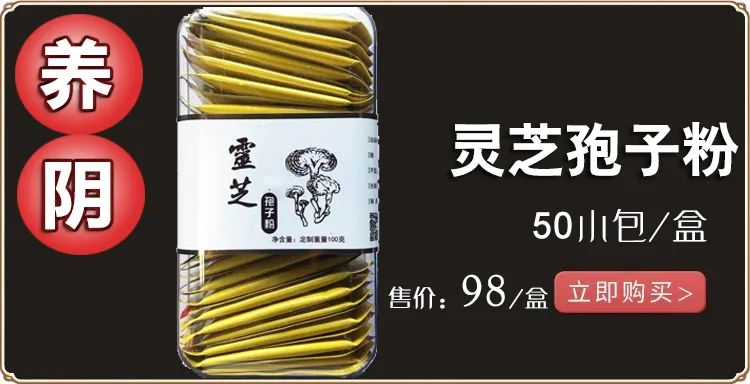
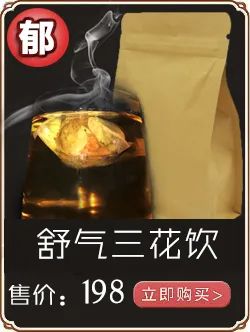
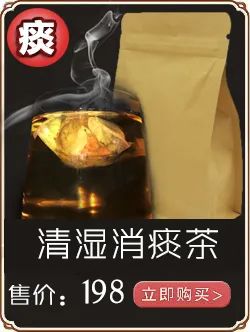
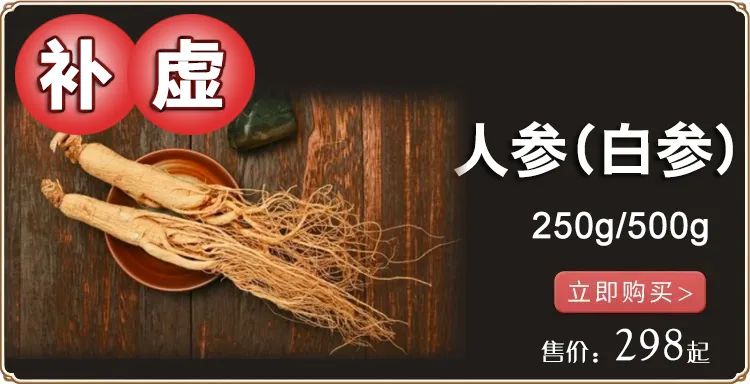
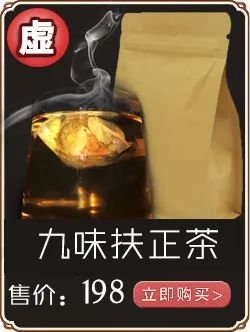
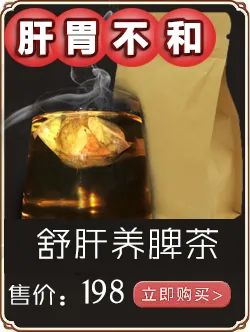

Author’s Note:Teacher Mu’s TCM regulation philosophy advocates:1. Those who do not understand yin and yang should not practice medicine; those who do not know the six qi cannot use medicine; to maintain health, one must first understand yin, yang, and the six qi.2. To maintain health, three key points: balance of yin and yang, sufficient qi and blood, and unobstructed meridians.3. The body’s self-rescue method—producing heat energy, but this heat energy can easily transform into heat pathogens later.4. The unity of heaven and man; the attributes of the six qi of “metal, wood, water, fire, and earth” change throughout the year, and the five organs of the human body also change accordingly, thus one must follow the seasonal changes for health maintenance.5. Constitution regulation—the basic balance of yin and yang, butthe constitution has a tendency towards yin or yang, and as this tendency accumulates to a certain extent, it will produce pathological products and lead to the following3 states:deficiency, stagnation, phlegm, and when the weather changes or life patterns are disrupted, it is easy to develop diseases; therefore, to treat the root cause, one must regulate the constitution. 6. The actions of the Mu Mu community in regulation are four:1) Predicting the current and next qi’s pathogenic factors and using dietary therapy for early prevention.2) Responding to the changes of heavenly stems and earthly branches, selecting one meridian and one acupoint daily to unblock the meridians.3) Regulating deficiency, stagnation, and phlegm through dietary therapy, herbal therapy, and physical therapy.4) Systematic study of TCM.
Special Reminder: If you like the article, don’t forget to click the “Looking” button at the bottom right of the article or share it with your friends.Due to limited energy and ability, I cannot reply to all comments, please forgive me. The formulas shared by Mu Mu are for communication purposes only; professional formulas and prescription medications should be used under the guidance of a physician, and do not take them casually, as the consequences are at your own risk.

